Crops & Food

With Earth Day happening around the world, let’s focus on 10 of the biggest challenges to our global agricultural and food system
As we celebrate Earth Day, the importance of transforming our food system is higher than ever – here are 10 ...

How Wegovy and Ozempic could transform our food systems
Can GLP-1 drugs for obesity and diabetes, like Ozempic and Wegovy, help change the food industry? Consumers on these drugs ...
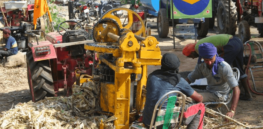
Viewpoint: Will India embrace a second green revolution — one focused on sustainable agriculture instead of yield?
Methane is a dangerous heat-trapping gas responsible for 47 per cent of India’s greenhouse gas (GHG) emissions. The agricultural sector ...

Gene-edited chickens could reduce the threat of bird flu spread and promote sustainability
A solution may be around the corner to an avian flu outbreak that has led to the deaths of millions of ...

Debating sustainable agriculture: Weed management and crop biotechnology
Any discussion of crop chemicals must consider the broad sweep of agricultural history, the pivotal moments of technological innovation, and ...
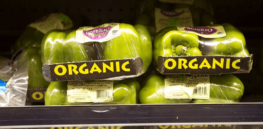
Viewpoint: The organic food industry is a $180 billion marketing fraud
As a biomedical scientist, it has never failed to annoy me that the term ‘organic’ has been co-opted to spread ...

Is tilapia a human-made freak that we should avoid — or an evolutionary rockstar?
Posts were appearing on my Facebook feed warning against the dangers of eating tilapia. So I decided to do a ...
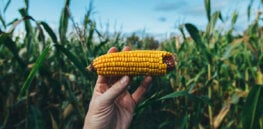
Are GMOs causing an increase in allergies?
The potential for allergies from foods with genetically modified ingredients is no higher than that in any food, including organics ...

Congress mulls transparency bills to limit booming industry of undisclosed third-party litigators
Litigation funders are hedge funds, credit lenders, and venture capitalists who front legal costs in exchange for a percentage of ...
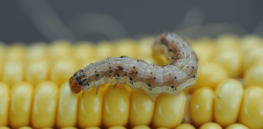
How a cutting edge gene tracker can help map the rise of pesticide resistance in caterpillars
Farmers rely on pesticides to control agricultural pests. But insects often develop resistance to the toxins in pesticides. University of ...
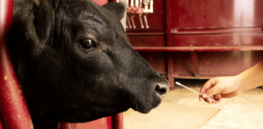
Bird flu detected in US dairy cattle for the first time, milk supply remains unaffected
Multiple U.S. agencies said on March 29 that for the first time, the rampant bird flu has spread to dairy ...

Did you hear the story about the GMO that nearly destroyed the world?
An old myth has resurfaced that a GMO almost destroyed all life on Earth — but what's the real story? ...

Methane is 28 times more powerful than CO2, and it’s increasing in the atmosphere. Here’s why and what must be done
The greenhouse gas methane is 28 times more powerful than CO2, and its presence is increasing in the atmosphere ...
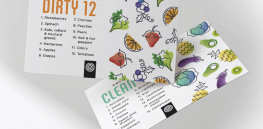
Viewpoint: The Environmental Working Group’s “Dirty Dozen” list is a danger to public health put out by an organic industry funded activist group
The Environmental Working Group (EWG) is an anti-science activist organization ...
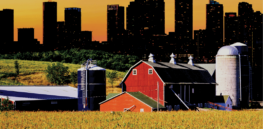
How are we feeding a global population that has tripled since 1940? Propelled by genetic tinkering, crop production takes up 8 to 11 times less land while maintaining yields
The impacts of climate change, particularly extreme weather events, will increase the likelihood of crop failure in the future. As ...

What role can gene editing play in neutralizing the global devastation caused by papaya viruses?
Amidst a backdrop of devastating viral attacks on papaya crops worldwide, scientific innovation emerges as a beacon of hope. Gene ...

False dawn or new dawn for genetically engineered crops in the European Union?
It's going to be a long and difficult journey before the fate of the European crop biotechnology reform bill passed ...

Viewpoint: Healthy eating is less about what you eat and more about how much
“Avoid carbohydrates!” “Eat intermittently!” “Eat like a caveman!” “Increase foods that are antioxidants!” The list of recommendations is vast ...
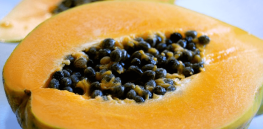
How gene editing could rescue virus-devastated global papaya crop
Plant viruses are formidable adversaries when it comes to producing high yielding crops, causing significant harm to global agriculture, and ...
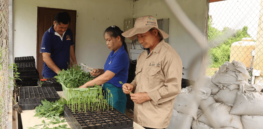
Video: Devastating Witches’ Broom disease is wiping out cassava crops across South Asia. Here’s how CRISPR nanotechnology could help contain the spread
In Southeast Asia, most smallholder farmers rely on cassava: its starch-rich roots form the basis of an industry that supports ...

GLP podcast: Technology keeps debunking ‘The Population Bomb;’ Internet access can harm mental health; Is urban farming sustainable? Probably not
Technological innovations continue to debunk predictions that global population growth will lead to mass starvation. Some mental health experts are ...
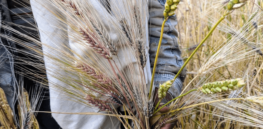
With climate change disruptions of farming and food escalating, scientists look to resilient ancient plant varieties as a possible safety net
In late September, an international team of researchers fanned out across a remote New Mexico mountain range, in search of ...
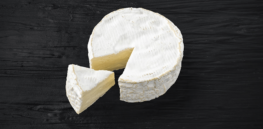
Genetic diversity squeeze: Camembert is on the verge of extinction. Here’s what can be done to rescue ‘endangered cheeses’
Each hunk of Camembert or smear of brie is an ecosystem, an assortment of fungi and bacteria that turn milk ...
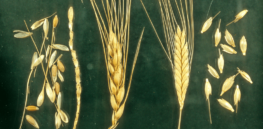
What’s driving the ‘multi-billion dollar fear-and-smear campaign against genetically-engineered crops’ — and the link between activists and Russia?
Because most of society is between two and six generations removed from farming, to many people that subject is largely ...

Analysis: Climate activists issue scare-warnings of impending starvation, but they ignore technology’s future role in scaling productivity
In 1968, the American scientists Paul and Anne Ehrlich published The Population Bomb. In it, The Ehrlichs foresaw widespread death and ...
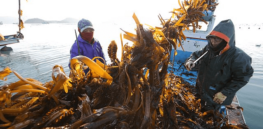
Post-apocalyptic farming? How seaweed could help us avert starvation during a nuclear winter
A nuclear war would plunge our planet into a deep nuclear winter. In the worst-case scenario, a nuclear exchange... could ...
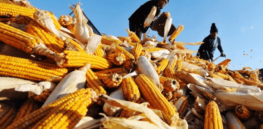
China reverses course, authorizes genetically modified corn and soybeans to wean itself off western imports
China is about to start growing genetically modified crops, and that has me wondering what it will mean for its ...

